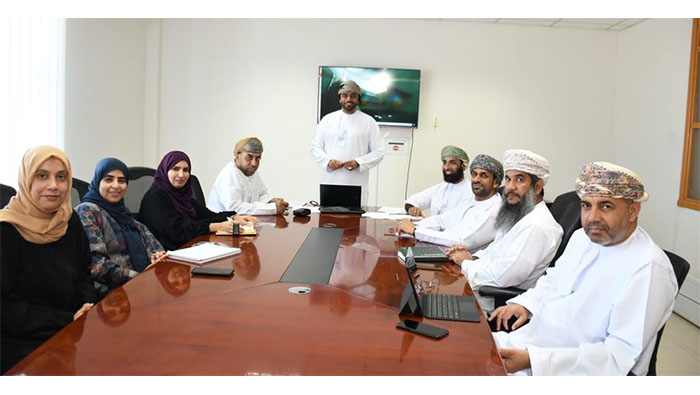
Muscat: The Ministry of Education, represented by the Directorate-General of Educational Supervision (Department of Human Sciences), implemented on Tuesday a training programme to develop a professional development plan using the ADKAR model.
The training programme targeted a number of supervisors and senior supervisors at the Department of Human Sciences Supervision, and it took place at the Ministry’s General Diwan.
The implementation of this training programme, presented by Fahd Al Balushi, Senior English Language Supervisor at the Department of Humanities at the Ministry, comes with the aim of providing supervisors with the ability to develop the design of professional development plans using the ADKAR model, and to address the performance gap facing the educational supervisor in providing the basic requirements for the advancement of the educational process.
This model also aims to help individuals and institutions manage change effectively and apply it to multiple educational models, as it gives the supervisor full knowledge of the performance gap there is, and how to address it in five sequential steps, in addition to designing professional development plans; to determine which stages to focus on to ensure the success of the transformation.
It can also be used to identify the necessary tools and measures to achieve the required transformation, and guide towards leading professional requirements with a scientific methodology and help manage change in the professional aspect.
In this training programme, the supervisors use the descriptive-inductive approach, by analysing the scientific literature, reading, and analysing documents to find a relationship between the scientific method and its impact on managing change in order to advance the educational-learning process.
It is worth noting that the ADKAR model consists of five stages that follow the development of the individual or the institution in achieving the required change.
The first stage begins with recognition of awareness and assimilation of change, and then it is followed by the stage of desire and enthusiasm to achieve the required transformation, then comes the stage of acquiring the knowledge and skills necessary to achieve change, and then the stage of developing capabilities and the ability to apply the acquired knowledge. The last stage is the stage of reinforcement and motivation to ensure the continuity of the required transformation.